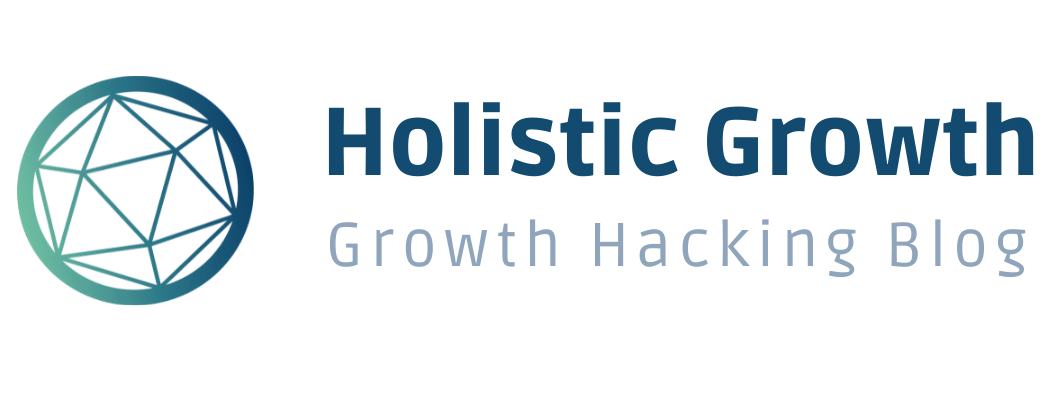Growth Marketing Foundations 1/2 – Review
Table of Contents
Growth vs. traditional marketing
There are many differences between growth and traditional marketing. To get a better understanding here is a list of bullet points what are the typical characteristics for both approaches.
Brand marketing traditionally is focused on top of the funnel, awareness and acquisition.
Growth marketing focuses on the entire funnel. So your job as a growth marketer is to drive growth across the business in any way that you can.
The way that you drive growth across all areas of the funnel is to constantly experiment with different programs, campaigns, product features, etc., that increase conversion, create better customer experiences, generate data that you can then use to learn and improve so that you can continually optimize your funnel and grow the business regardless of any kind your focus is.
A good way to describe the principle of growth marketing is the Lean Startup Methodology. Its all about defining a hypothes about what a customer wants, finding the fastest and most efficient way to test that hypothesis, design an experiment that can validate or invalidate your hypothesis.
It´s very important ro run continuously experiments to generate data, learn something about your customers and then constantly improve the process is how you grow as a business and getting results faster.
growth is always, whether it's in the context of marketing or as an individual, it's about constantly learning and getting better day by day.
Experimentation as the defining trait of growth
In the digital marketing world it is very important to carry out experiments with the aim of repeatedly optimizing various KPIs (e.g. conversation or retention rate). The following example is intended to briefly illustrate what is meant by this.
Let´s say company A has an e-commerce shop and wants to test their email marketing channel to see if after running a campaign, more people visit their website or even better the purchase rate increases.
The way you do that is you come up with a hypothesis. Say, if people get reminded that Company A is convenient, they actually use this email, send it to me and they say, “Save yourself an hour this week. Use Company A instead of going to the X store.” Set it up as an A/B test. See if the people that receive the email actually buy more from X store or come back to company A website more often than people that don’t see the email. As a result you will learn if the email itself actually increase retention rate or purchase rate of customers versus not getting the email at all. Then if you learn that sending emails is a good idea and actually increases purchases, you can then move on to the next hypothesis.
Summarized the 3 steps of this little demonstration should be as follow:
- Sending email yes/no
- If yes: chose the right message to adress people who want to purchase
- go more into detail of the message: e.g. is it about convenience or about the price
- tailor the message to individual customers. Understand what campaign, what offer, what message resonates with customer A bettert han with customer B
Come up with a series of five to ten experiments that you want to run and which should increase retention rates. For running good experiments you need to ask the right questions e.g.:
How do you actually get better about your email marketing? Or how do you make better landing pages? So for your entire audience, then how do you create the best experience to drive 10% more growth or 20% more growth on top of the most basic?
So at the end of the day, the ideal state of any growth processis to get to the point where you know what is the right message, the right offer, the right customer experience for each individual customer in your business in order to drive the best experience and the best results.
If you set something up as as experiment, even when you fail, you are learning. Therefore, it is valuable to get this experiences.
Quick aside on growth hacking
It’s essentially how can you build a minimum viable product, the most simple working version of some sort of technology product, as quickly as possible using minimal resources.
Growth is about a process. There isn’t one hack, it’s a series of hacks that fold into a broader process about constantly experimenting and learning so that you can accelerate learning and get to the end result faster.
What makes a successful growth marketer?
Three elementar skills to get an successful growth marketer:
- channel level expertise
- Email marketing, SEO, fb ads, understanding how the channel works
- analytical capability
- being able to extract data to gather insights,to analyze your own experiments, and just use data is like the lifeblood of growth
- Tools being useful: Excel or SQL skills
- strategic thinking ability
- typical job roles: product manager or growth manager
- being able to come up with good ideas, figuring out how do you actually pick the right experiments, how do you prioritize your roadmap, how do you actually think about your customers’ experience and the customer journey to identify big opportunities
- working with other stakeholders’ cause like growth is crossfunctional and if you are not particularly good at working with creatives, engineers or an analytics team, you’re going to have a hard time driving projects
How to become a growth marketer
A useful requirement for getting a growth marketer is to come in with cool ideas about experiments they should run, do an email marketing tear down, sign up for their product, do a tear down of their onboarding flow and come up with ideas for how they can improve it.
The best way is when you apply all of the philosophies of growth to yourself. Growth in the context of businessis about trying new things and constantly improving and constantly getting better. The best growth marketers are people that apply that same thinking to themselves in their own life.
Having the ability to teach yourself, enjoying learning and being curious.
How to grow your career in growth
- the best way to figure out how to make your next move in your business career to get that role that you want, is identify somebody in the company who has made similar jumps, maybe a year or two before you and talk to them, learn from them.”What did you do to go from where I am right now,” to where you are today? And learn from their experience.
- So just challenge yourself, never accept that status quo and apply the methodologies of growth to yourself. Try new things, optimize your process, obsess over being more productive and more effective
- That’s one of the easiest things to A/B test, is productivity hacks and routines. If you unlock one thing, that would probably be the one. ‘Cause I think most people are hugely ineffectivein how they utilize their time. You get distracted a lot. everyone recognizes himself here. You got millions of emails and meetings. And I found my greatest periods of success and growth, have been when I have been rigorously enforcedlike new ways of being more productive. Like scheduling out my entire week, blocking off time to only do work and single tasking. No emails, one tab open on my computer, it’s the one thing that I focus on. It’s hard to stay disciplined with that stuff, ’cause there’s just so much noise. But, investing in having the right foundation to grow upon is really important. It’s hard, but it’s really good.


